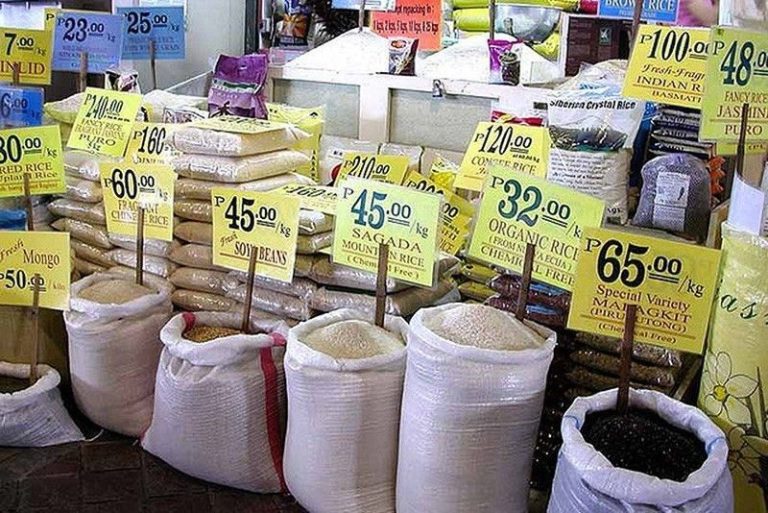
Philippine Daily Inquirer /October 24, 2022
Lawmakers need to take a closer look at the bill filed in the House of Representatives two weeks ago seeking to exempt basic commodities from the 12-percent value-added tax (VAT). Sponsored by the progressive Makabayan bloc of party list lawmakers Rep. Arlene Brosas of Gabriela Women’s Party, Rep. Raoul Manuel of Kabataan, and Rep. France Castro of the Alliance of Concerned Teachers, the measure notes that removing the VAT on these products will greatly help consumers, especially during this time of rising inflation.
Inflation heated up to a four-year high of 6.9 percent in September, according to the Philippine Statistics Authority, and this was driven mainly by high prices of food items. This is the same level last seen in October 2018. The sad news is that inflation is not easing anytime soon. Bangko Sentral ng Pilipinas governor Felipe Medalla says that inflation is expected to peak this month or in November as it is likely to be exacerbated by a renewed weakening of the peso against the dollar, which contributes to the further erosion of Filipino consumers’ buying power. The greenback is trading near P60 to $1. Private economists are less optimistic, predicting inflation to remain elevated through the first quarter of 2023.
The House bill wants to exempt the following essential items from VAT: bread; sugar; cooking oil; canned pork, beef, fish, and other marine products; instant noodles; biscuit; laundry soap; detergents; firewood; charcoal; candles, and drugs classified as essential by the Department of Health. “Removing the 12-percent VAT on basic goods consumed by poor families on a regular basis will dramatically ease their economic suffering amid skyrocketing prices, massive joblessness, and depressed wages,” according to Brosas. The VAT was first imposed under Executive Order No. 273 in July 1987, which was issued by then President Corazon Aquino.
The country’s biggest business group is backing the proposed legislation, noting that it will help not only consumers, but the private sector as well. George Barcelon, president of the Philippine Chamber of Commerce and Industry (PCCI), tells the Inquirer that lifting the 12-percent VAT on essential goods will help ease Filipinos’ suffering from the unabated increase in the prices of basic commodities. The lifting of the VAT, Barcelon adds, will also help local businesses sell more of their products, as high prices make most people spend less, hence pulling down their revenues.
The PCCI official predicts that local businesses will be able to lower their prices with the tax removal since the VAT is factored into the final price of a product and passed on to the consumer. Sugar, for example, sells now for P100 a kilo, and removing the VAT will lower this by P12. Aside from consumers, Barcelon says small and medium food-related businesses, in particular, will benefit from such a move.
One potential beneficiary is the bakery sector. Last week, local bakers pressed the Department of Trade and Industry (DTI) to heed their request for a P4 increase in the price of bread due to the rising cost of raw materials. Philippine Baking Industry Group president Jerry Lao says that due to rising production costs, there is no more incentive for them to keep on making the two bread products commonly bought by consumers—Pinoy Tasty and Pinoy Pandesal. “From P650 per bag of flour, [the price has] increased to P1,050 per bag, [or an additional] P400. When we apply our formula, [the price of] Pinoy Tasty should [go up by] P10 per loaf,” he says. Pinoy Tasty and Pinoy Pandesal are brands manufactured through a joint initiative between the DTI and a bakers group to produce affordable bread for the public. Lucito Chavez, president of the Association of Filipino Bakers also tells the Inquirer that small, community bakeries are suffering due to the high prices of raw materials used in making bread. “The community bakery industry is nearly dying [due to] the high cost of sugar and other raw materials, and the low sales,” Chavez notes. Based on his estimates, there are about 50,000 small community bakeries nationwide.
With wages hardly catching up with the rate of increase in consumer prices, the proposed House measure exempting essential items will be a big help especially to the lower income classes. However, the government must ensure that big companies will pass on the savings to be generated from the tax exemption to consumers via a lowering of their prices. Otherwise, the poor will remain burdened by high prices. As Brosas also points out, “instead of asking consumers to control their purchases, it is the government’s responsibility to provide concrete solutions to address high prices. This should be the priority instead of pushing proposals that have nothing to do with the hunger pangs of the poor.” And timing is of the essence. Consumers have been suffering from high prices for too long. Lawmakers need to act on the proposed bill with dispatch. It will be a fitting Christmas gift, especially to those who badly need a respite from surging consumer prices.